-

Aug
03
Interpretive Summary: Food insecurity at 17%
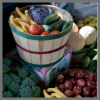
The June 2023 edition of the Consumer Food Insights from Purdue University was recently published, citing food insecurity at 17%. The Consumer Food Index, created by Purdue University’s Center for Food Demand Analysis and Sustainability, examines different annual household income categories and related consumer behaviors.
Read more
-

Aug
03
Interpretive Summary: Livestock Disaster Relief Act introduced

The Livestock Disaster Relief Act was recently introduced by Senators Jon Tester (D-MT) and John Hoeven (R-ND). The bipartisan bill would improve the Livestock Forage Program (LFP) and Emergency Assistance for Livestock Program (ELAP) to better meet the needs of ranchers impacted by natural disasters.
Read more
-

Aug
03
Interpretive Summary: Motion for summary judgement on WOTUS submitted

The National Cattlemen’s Beef Association (NCBA) has filed a motion in the United States District Court for the Southern District of Texas asking the court to strike down the Waters of the United States (WOTUS) rule in response to the Supreme Court’s decision in Sackett v. EPA. The Supreme Court ruled in favor of landowners and limited the Environmental Protection Agency’s (EPA’s) regulation powers.
Read more
-

Aug
03
Interpretive Summary: Prop 12 implementation date extended
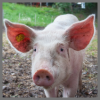
The National Pork Producers Council (NPPC) has successfully filed a modification to extend the implementation date of Proposition 12 (Prop 12), to allow the U.S. pork industry and food supply chain additional time to transition. In late 2022, a California judge extended a stay on enforcement of the law until July 1, 2023, pending the outcome of the United States Supreme Court.
Read more
-

Aug
03
Interpretive Summary: Question 3 delayed in Massachusetts
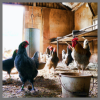
A district judge in the state of Massachusetts has delayed the implementation of the Act to Prevent Cruelty in Farm Animals (Question 3) until August 23, 2023, originally set to go into effect on August 15, 2022. Question 3 was a 2016 ballot initiative that prohibits any farm owner or operator from knowingly confining any breeding pig, calf raised for veal, or egg-laying hen in a way that prevents the animal from lying down, standing up, fully extending its limbs, or turning around freely.
Read more
-

Aug
03
Interpretive Summary: USDA Deputy Secretary confirmed

Xochitl Torres Small has been confirmed as Deputy Secretary of the United States Department of Agriculture (USDA). Torres Small was nominated by President Joe Biden in February for the position. Torres Small has a law degree from the University of New Mexico School of Law, an undergraduate degree from Georgetown University’s School of Foreign Service, and an international baccalaureate from Waterford Kamhlaba United World College of Southern Africa.
Read more
-

Aug
03
Interpretive Summary: USDA invests in meat and poultry processing
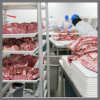
The United States Department of Agriculture (USDA) has announced that it will invest $115 million to increase meat and poultry processing capacity. USDA is providing 15 awards totaling $115 million in 17 states.
Read more
-

Jul
31
ASAS Writing Workshop
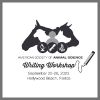
Publishing is a cornerstone of our scientific community and because of rapid changes in the publication landscape, ASAS is offering a day and a half writing workshop for graduate students and early career scientists. The workshop will concentrate on the production of a paper from start to finishing – writing to submission, to surviving the review, to picking the correct journal to publish. The workshop will be conducted by current and former editors of major Scientific journals.
Read more
-

Jul
20
Summary: Cow Calf Symposium
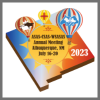
On July 18, the Ruminant Nutrition Symposium: Current and future perspectives on nutritional management in the beef cow-calf sector had a panel of speakers conducting research in a variety of environments and production systems. Dr. Harvey Freetly (USDA MARC) kicked off the session sharing data where beef cow metabolizable energy for maintenance had a moderate heritability and could possibly be used as a selection tool going forward.
Read more
-

Jul
20
Summary: NRCS Symposium
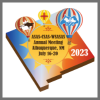
On the afternoon of July 19 at the ASAS Annual Meeting, the National Resources Conservation Services featured a session where animal science meets conservation practice innovation. The session began with Dr. Sara Place (Colorado State University), who discussed leveraging feed technologies to reduce methane emissions from livestock; she discussed the promising approaches to reducing methane emissions from livestock from the past decade and highlighted new methods and technologies that have the potential to transform livestock production for greater economic and environmental gains in the near future.
Read more
-

Jul
19
Summary: Lunch & Learn - Reviewing for a Scientific Journal
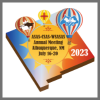
On July 19, graduate students and new faculty members gathered for a Lunch & Learn with Dr. Elisabeth Huff-Lonergan, current Editor-in-Chief of the Journal of Animal Science, and Dr. Steven Zinn, former Editor-in-Chief of the Journal of Animal Science.
Read more
-

Jul
19
Summary: Companion Animal II Symposium
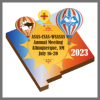
On Wednesday, July 19, the Companion Animal Symposium featured an awards talk by Dr. Erin Perry. At the beginning of the session, Perry, a professor at Southern Illinois University, was presented with the Corbin Award in Companion Animal Biology. She then shared her current research regarding canine health and hygiene within the One Health lens.
Read more
-

Jul
19
Summary: CSAS Symposium II
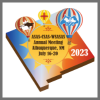
On the afternoon of July 18, the CSAS sponsored a symposium dedicated to exotic species as meat protein alternatives. Alternatives discussed included water buffalo and capybara, as well as bison. Dr. Jayson Galbraith, a livestock specialist at Alberta Agriculture and Irrigation, discussed the wide variety of meats consumed worldwide, consumption trends, and the importance of understanding characteristics of specific meats.
Read more
-

Jul
19
Summary: Animal Well-Being & Behavior Symposium
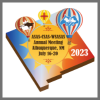
As the ASAS Annual Meeting continued through the afternoon of its third day, there were a wide variety of sessions for attendees to choose from, including beef reproduction, growth, and development, companion animals, meat protein alternatives, and more. The Animal Well-Being and Behavior Symposium focused on production animal welfare and featured an awards talk by Dr. Jay Johnson (USDA). Johnson, who was awarded the Early Career Achievement Award by ASAS, discussed improving swine heat stress resilience in order to optimize productivity and welfare in a changing climate.
Read more
-

Jul
18
Summary: ASAS Diversity, Equity, and Inclusion Symposium
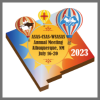
During the morning session of the third day of the ASAS Annual Meeting, Dr. Shawn Archibeque led the Diversity, Equity, and Inclusion Symposium, featuring presentations by Dr. Teresa Maria Linda Scholz (New Mexico State University), Aaron Sales (New Mexico State University), and Dr. Nicole Tillquist (UConn).
Read more
-

Jul
18
Summary: Small Ruminant Symposium
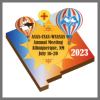
On the afternoon of July 17, the Small Ruminant Symposium was held as part of the ASAS Annual Meeting. The focus of this session was precision sheep management and moving from research to application to better support the industry.
Read more
-

Jul
17
Summary: Physiology and Endocrinology Symposium
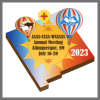
As the ASAS Annual Meeting headed into full swing, the Monday morning session featured a discussion on Physiology and Endocrinology. The symposium entitled “An Update on the Brain,” focused on new insights into the inner workings of the hypothalamus and pituitary glands.
Read more
-

Jul
17
Summary: WSASAS Beef Symposium: Climate Adaptation Strategies for the Beef Industry of the Great Plains and Western US
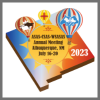
On Sunday, July 15, the ASAS Annual Meeting kicked off in Albuquerque, New Mexico with a Beef Symposium sponsored by the Western Section. The session was led by Dr. Glenn Duff of New Mexico State and focused on climate adaptation strategies for the beef industry of the Great Plains and Western United States.
Read more
-

Jul
12
Interpretive Summary: A systems approach to evaluate nitrogen utilization efficiency and environmental impacts of swine growing-finishing feeding programs in U.S. pork production systems
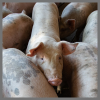
Four growing-finishing feeding programs consisting of typical corn-soybean meal (CSBM) diets, low protein CSBM diets containing supplemental crystalline amino acids (LP), CSBM diets containing 30% corn dried distillers grains with solubles (DDGS), and DDGS diets containing supplemental crystalline Ile, Val, and Trp were evaluated to compare their effects on growth performance, carcass composition, nitrogen and phosphorus utilization efficiency, and several environmental impact measures.
Read more
-

Jul
12
Infographic: A Holistic Perspective of the Societal Relevance of Beef Production and Its Impacts On Climate Change
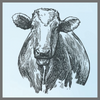
This infographic highlights a recently published paper titled “A Holistic Perspective of the Societal Relevance of Beef Production and Its Impacts On Climate Change” (Tedeschi and Beauchemin, 2023). A key component of the paper is the discussion about the relevance of the U.S. beef cattle industry to society and on its contribution to greenhouse gas emissions.
Read more
 AugInterpretive Summary: Food insecurity at 17%
AugInterpretive Summary: Food insecurity at 17% The June 2023 edition of the Consumer Food Insights from Purdue University was recently published, citing food insecurity at 17%. The Consumer Food Index, created by Purdue University’s Center for Food Demand Analysis and Sustainability, examines different annual household income categories and related consumer behaviors.
The June 2023 edition of the Consumer Food Insights from Purdue University was recently published, citing food insecurity at 17%. The Consumer Food Index, created by Purdue University’s Center for Food Demand Analysis and Sustainability, examines different annual household income categories and related consumer behaviors. AugInterpretive Summary: Livestock Disaster Relief Act introduced
AugInterpretive Summary: Livestock Disaster Relief Act introduced The Livestock Disaster Relief Act was recently introduced by Senators Jon Tester (D-MT) and John Hoeven (R-ND). The bipartisan bill would improve the Livestock Forage Program (LFP) and Emergency Assistance for Livestock Program (ELAP) to better meet the needs of ranchers impacted by natural disasters.
The Livestock Disaster Relief Act was recently introduced by Senators Jon Tester (D-MT) and John Hoeven (R-ND). The bipartisan bill would improve the Livestock Forage Program (LFP) and Emergency Assistance for Livestock Program (ELAP) to better meet the needs of ranchers impacted by natural disasters. AugInterpretive Summary: Motion for summary judgement on WOTUS submitted
AugInterpretive Summary: Motion for summary judgement on WOTUS submitted The National Cattlemen’s Beef Association (NCBA) has filed a motion in the United States District Court for the Southern District of Texas asking the court to strike down the Waters of the United States (WOTUS) rule in response to the Supreme Court’s decision in Sackett v. EPA. The Supreme Court ruled in favor of landowners and limited the Environmental Protection Agency’s (EPA’s) regulation powers.
The National Cattlemen’s Beef Association (NCBA) has filed a motion in the United States District Court for the Southern District of Texas asking the court to strike down the Waters of the United States (WOTUS) rule in response to the Supreme Court’s decision in Sackett v. EPA. The Supreme Court ruled in favor of landowners and limited the Environmental Protection Agency’s (EPA’s) regulation powers. AugInterpretive Summary: Prop 12 implementation date extended
AugInterpretive Summary: Prop 12 implementation date extended The National Pork Producers Council (NPPC) has successfully filed a modification to extend the implementation date of Proposition 12 (Prop 12), to allow the U.S. pork industry and food supply chain additional time to transition. In late 2022, a California judge extended a stay on enforcement of the law until July 1, 2023, pending the outcome of the United States Supreme Court.
The National Pork Producers Council (NPPC) has successfully filed a modification to extend the implementation date of Proposition 12 (Prop 12), to allow the U.S. pork industry and food supply chain additional time to transition. In late 2022, a California judge extended a stay on enforcement of the law until July 1, 2023, pending the outcome of the United States Supreme Court. AugInterpretive Summary: Question 3 delayed in Massachusetts
AugInterpretive Summary: Question 3 delayed in Massachusetts A district judge in the state of Massachusetts has delayed the implementation of the Act to Prevent Cruelty in Farm Animals (Question 3) until August 23, 2023, originally set to go into effect on August 15, 2022. Question 3 was a 2016 ballot initiative that prohibits any farm owner or operator from knowingly confining any breeding pig, calf raised for veal, or egg-laying hen in a way that prevents the animal from lying down, standing up, fully extending its limbs, or turning around freely.
A district judge in the state of Massachusetts has delayed the implementation of the Act to Prevent Cruelty in Farm Animals (Question 3) until August 23, 2023, originally set to go into effect on August 15, 2022. Question 3 was a 2016 ballot initiative that prohibits any farm owner or operator from knowingly confining any breeding pig, calf raised for veal, or egg-laying hen in a way that prevents the animal from lying down, standing up, fully extending its limbs, or turning around freely. AugInterpretive Summary: USDA Deputy Secretary confirmed
AugInterpretive Summary: USDA Deputy Secretary confirmed Xochitl Torres Small has been confirmed as Deputy Secretary of the United States Department of Agriculture (USDA). Torres Small was nominated by President Joe Biden in February for the position. Torres Small has a law degree from the University of New Mexico School of Law, an undergraduate degree from Georgetown University’s School of Foreign Service, and an international baccalaureate from Waterford Kamhlaba United World College of Southern Africa.
Xochitl Torres Small has been confirmed as Deputy Secretary of the United States Department of Agriculture (USDA). Torres Small was nominated by President Joe Biden in February for the position. Torres Small has a law degree from the University of New Mexico School of Law, an undergraduate degree from Georgetown University’s School of Foreign Service, and an international baccalaureate from Waterford Kamhlaba United World College of Southern Africa. AugInterpretive Summary: USDA invests in meat and poultry processing
AugInterpretive Summary: USDA invests in meat and poultry processing The United States Department of Agriculture (USDA) has announced that it will invest $115 million to increase meat and poultry processing capacity. USDA is providing 15 awards totaling $115 million in 17 states.
The United States Department of Agriculture (USDA) has announced that it will invest $115 million to increase meat and poultry processing capacity. USDA is providing 15 awards totaling $115 million in 17 states. JulASAS Writing Workshop
JulASAS Writing Workshop Publishing is a cornerstone of our scientific community and because of rapid changes in the publication landscape, ASAS is offering a day and a half writing workshop for graduate students and early career scientists. The workshop will concentrate on the production of a paper from start to finishing – writing to submission, to surviving the review, to picking the correct journal to publish. The workshop will be conducted by current and former editors of major Scientific journals.
Publishing is a cornerstone of our scientific community and because of rapid changes in the publication landscape, ASAS is offering a day and a half writing workshop for graduate students and early career scientists. The workshop will concentrate on the production of a paper from start to finishing – writing to submission, to surviving the review, to picking the correct journal to publish. The workshop will be conducted by current and former editors of major Scientific journals. JulSummary: Cow Calf Symposium
JulSummary: Cow Calf Symposium On July 18, the Ruminant Nutrition Symposium: Current and future perspectives on nutritional management in the beef cow-calf sector had a panel of speakers conducting research in a variety of environments and production systems. Dr. Harvey Freetly (USDA MARC) kicked off the session sharing data where beef cow metabolizable energy for maintenance had a moderate heritability and could possibly be used as a selection tool going forward.
On July 18, the Ruminant Nutrition Symposium: Current and future perspectives on nutritional management in the beef cow-calf sector had a panel of speakers conducting research in a variety of environments and production systems. Dr. Harvey Freetly (USDA MARC) kicked off the session sharing data where beef cow metabolizable energy for maintenance had a moderate heritability and could possibly be used as a selection tool going forward. JulSummary: NRCS Symposium
JulSummary: NRCS Symposium On the afternoon of July 19 at the ASAS Annual Meeting, the National Resources Conservation Services featured a session where animal science meets conservation practice innovation. The session began with Dr. Sara Place (Colorado State University), who discussed leveraging feed technologies to reduce methane emissions from livestock; she discussed the promising approaches to reducing methane emissions from livestock from the past decade and highlighted new methods and technologies that have the potential to transform livestock production for greater economic and environmental gains in the near future.
On the afternoon of July 19 at the ASAS Annual Meeting, the National Resources Conservation Services featured a session where animal science meets conservation practice innovation. The session began with Dr. Sara Place (Colorado State University), who discussed leveraging feed technologies to reduce methane emissions from livestock; she discussed the promising approaches to reducing methane emissions from livestock from the past decade and highlighted new methods and technologies that have the potential to transform livestock production for greater economic and environmental gains in the near future. JulSummary: Lunch & Learn - Reviewing for a Scientific Journal
JulSummary: Lunch & Learn - Reviewing for a Scientific Journal On July 19, graduate students and new faculty members gathered for a Lunch & Learn with Dr. Elisabeth Huff-Lonergan, current Editor-in-Chief of the Journal of Animal Science, and Dr. Steven Zinn, former Editor-in-Chief of the Journal of Animal Science.
On July 19, graduate students and new faculty members gathered for a Lunch & Learn with Dr. Elisabeth Huff-Lonergan, current Editor-in-Chief of the Journal of Animal Science, and Dr. Steven Zinn, former Editor-in-Chief of the Journal of Animal Science. JulSummary: Companion Animal II Symposium
JulSummary: Companion Animal II Symposium On Wednesday, July 19, the Companion Animal Symposium featured an awards talk by Dr. Erin Perry. At the beginning of the session, Perry, a professor at Southern Illinois University, was presented with the Corbin Award in Companion Animal Biology. She then shared her current research regarding canine health and hygiene within the One Health lens.
On Wednesday, July 19, the Companion Animal Symposium featured an awards talk by Dr. Erin Perry. At the beginning of the session, Perry, a professor at Southern Illinois University, was presented with the Corbin Award in Companion Animal Biology. She then shared her current research regarding canine health and hygiene within the One Health lens. JulSummary: CSAS Symposium II
JulSummary: CSAS Symposium II On the afternoon of July 18, the CSAS sponsored a symposium dedicated to exotic species as meat protein alternatives. Alternatives discussed included water buffalo and capybara, as well as bison. Dr. Jayson Galbraith, a livestock specialist at Alberta Agriculture and Irrigation, discussed the wide variety of meats consumed worldwide, consumption trends, and the importance of understanding characteristics of specific meats.
On the afternoon of July 18, the CSAS sponsored a symposium dedicated to exotic species as meat protein alternatives. Alternatives discussed included water buffalo and capybara, as well as bison. Dr. Jayson Galbraith, a livestock specialist at Alberta Agriculture and Irrigation, discussed the wide variety of meats consumed worldwide, consumption trends, and the importance of understanding characteristics of specific meats. JulSummary: Animal Well-Being & Behavior Symposium
JulSummary: Animal Well-Being & Behavior Symposium As the ASAS Annual Meeting continued through the afternoon of its third day, there were a wide variety of sessions for attendees to choose from, including beef reproduction, growth, and development, companion animals, meat protein alternatives, and more. The Animal Well-Being and Behavior Symposium focused on production animal welfare and featured an awards talk by Dr. Jay Johnson (USDA). Johnson, who was awarded the Early Career Achievement Award by ASAS, discussed improving swine heat stress resilience in order to optimize productivity and welfare in a changing climate.
As the ASAS Annual Meeting continued through the afternoon of its third day, there were a wide variety of sessions for attendees to choose from, including beef reproduction, growth, and development, companion animals, meat protein alternatives, and more. The Animal Well-Being and Behavior Symposium focused on production animal welfare and featured an awards talk by Dr. Jay Johnson (USDA). Johnson, who was awarded the Early Career Achievement Award by ASAS, discussed improving swine heat stress resilience in order to optimize productivity and welfare in a changing climate. JulSummary: ASAS Diversity, Equity, and Inclusion Symposium
JulSummary: ASAS Diversity, Equity, and Inclusion Symposium During the morning session of the third day of the ASAS Annual Meeting, Dr. Shawn Archibeque led the Diversity, Equity, and Inclusion Symposium, featuring presentations by Dr. Teresa Maria Linda Scholz (New Mexico State University), Aaron Sales (New Mexico State University), and Dr. Nicole Tillquist (UConn).
During the morning session of the third day of the ASAS Annual Meeting, Dr. Shawn Archibeque led the Diversity, Equity, and Inclusion Symposium, featuring presentations by Dr. Teresa Maria Linda Scholz (New Mexico State University), Aaron Sales (New Mexico State University), and Dr. Nicole Tillquist (UConn). JulSummary: Small Ruminant Symposium
JulSummary: Small Ruminant Symposium On the afternoon of July 17, the Small Ruminant Symposium was held as part of the ASAS Annual Meeting. The focus of this session was precision sheep management and moving from research to application to better support the industry.
On the afternoon of July 17, the Small Ruminant Symposium was held as part of the ASAS Annual Meeting. The focus of this session was precision sheep management and moving from research to application to better support the industry. JulSummary: Physiology and Endocrinology Symposium
JulSummary: Physiology and Endocrinology Symposium As the ASAS Annual Meeting headed into full swing, the Monday morning session featured a discussion on Physiology and Endocrinology. The symposium entitled “An Update on the Brain,” focused on new insights into the inner workings of the hypothalamus and pituitary glands.
As the ASAS Annual Meeting headed into full swing, the Monday morning session featured a discussion on Physiology and Endocrinology. The symposium entitled “An Update on the Brain,” focused on new insights into the inner workings of the hypothalamus and pituitary glands. JulSummary: WSASAS Beef Symposium: Climate Adaptation Strategies for the Beef Industry of the Great Plains and Western US
JulSummary: WSASAS Beef Symposium: Climate Adaptation Strategies for the Beef Industry of the Great Plains and Western US On Sunday, July 15, the ASAS Annual Meeting kicked off in Albuquerque, New Mexico with a Beef Symposium sponsored by the Western Section. The session was led by Dr. Glenn Duff of New Mexico State and focused on climate adaptation strategies for the beef industry of the Great Plains and Western United States.
On Sunday, July 15, the ASAS Annual Meeting kicked off in Albuquerque, New Mexico with a Beef Symposium sponsored by the Western Section. The session was led by Dr. Glenn Duff of New Mexico State and focused on climate adaptation strategies for the beef industry of the Great Plains and Western United States. JulInterpretive Summary: A systems approach to evaluate nitrogen utilization efficiency and environmental impacts of swine growing-finishing feeding programs in U.S. pork production systems
JulInterpretive Summary: A systems approach to evaluate nitrogen utilization efficiency and environmental impacts of swine growing-finishing feeding programs in U.S. pork production systems Four growing-finishing feeding programs consisting of typical corn-soybean meal (CSBM) diets, low protein CSBM diets containing supplemental crystalline amino acids (LP), CSBM diets containing 30% corn dried distillers grains with solubles (DDGS), and DDGS diets containing supplemental crystalline Ile, Val, and Trp were evaluated to compare their effects on growth performance, carcass composition, nitrogen and phosphorus utilization efficiency, and several environmental impact measures.
Four growing-finishing feeding programs consisting of typical corn-soybean meal (CSBM) diets, low protein CSBM diets containing supplemental crystalline amino acids (LP), CSBM diets containing 30% corn dried distillers grains with solubles (DDGS), and DDGS diets containing supplemental crystalline Ile, Val, and Trp were evaluated to compare their effects on growth performance, carcass composition, nitrogen and phosphorus utilization efficiency, and several environmental impact measures. JulInfographic: A Holistic Perspective of the Societal Relevance of Beef Production and Its Impacts On Climate Change
JulInfographic: A Holistic Perspective of the Societal Relevance of Beef Production and Its Impacts On Climate Change This infographic highlights a recently published paper titled “A Holistic Perspective of the Societal Relevance of Beef Production and Its Impacts On Climate Change” (Tedeschi and Beauchemin, 2023). A key component of the paper is the discussion about the relevance of the U.S. beef cattle industry to society and on its contribution to greenhouse gas emissions.
This infographic highlights a recently published paper titled “A Holistic Perspective of the Societal Relevance of Beef Production and Its Impacts On Climate Change” (Tedeschi and Beauchemin, 2023). A key component of the paper is the discussion about the relevance of the U.S. beef cattle industry to society and on its contribution to greenhouse gas emissions.



